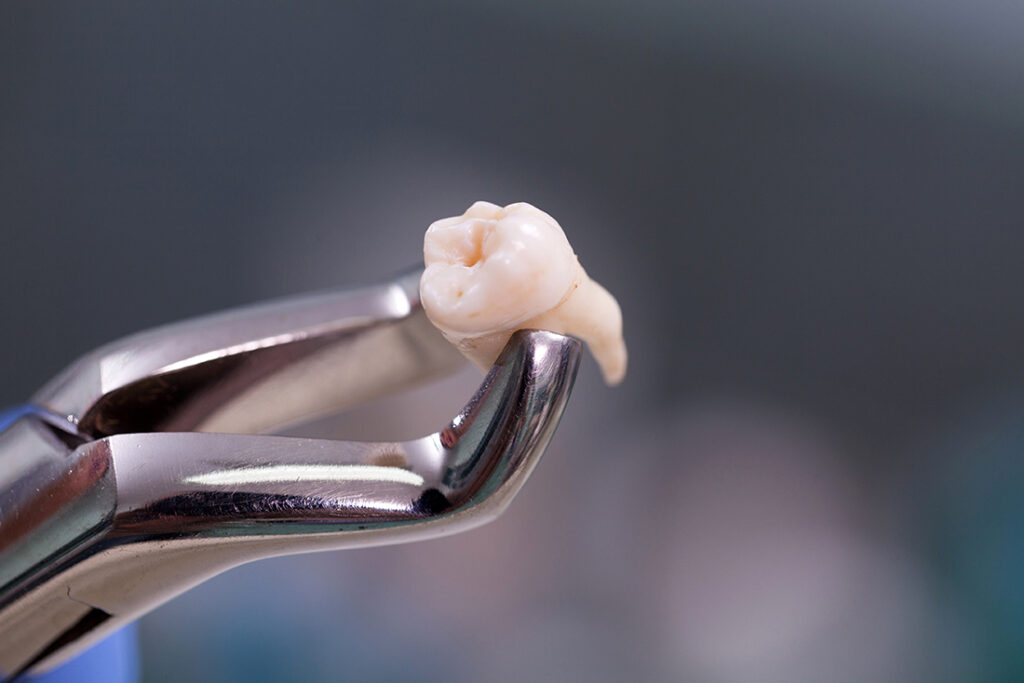Tooth Extraction in Sheffield
- Home
- /
- Treatments
- /
- General Dentistry
- /
- Tooth Extraction
There are times, however, when tooth extraction is the necessary course of action.
We may recommend a tooth extraction if you have a tooth that is damaged or decayed beyond repair. Other reasons for removing teeth include infected wisdom teeth, overcrowding, and, in some cases, baby teeth that have yet to fall out before adult teeth come through.
We understand that receiving a tooth extraction could be an intimidating prospect for some of our patients, but this needn’t be the case. You will first be administered a local anaesthetic before beginning the treatment, so you won’t experience any pain. We’ll then begin to gently widen the socket of the tooth to loosen and remove it.

We may have to administer stitches to help the socket heal properly, and we’ll go through all your aftercare needs with you. We will advise you to avoid hot and cold drinks before the anaesthetic has completely worn off and to keep the area clean.
It is normal to start to experience pain in the area as the effects of the anaesthesia begin to wear off. If this pain is uncomfortable, we recommend taking a painkiller such as paracetamol or ibuprofen. If the pain persists after several days, you should contact us here at the practice for a follow-up.
Depending on the reasons behind your tooth extraction, you may then want to consider replacing your missing tooth. We can help you decide which treatment might be best for you at this stage and have a wide range of options available, including implants, dentures, and implant-retained bridges.
Back to General Dentistry